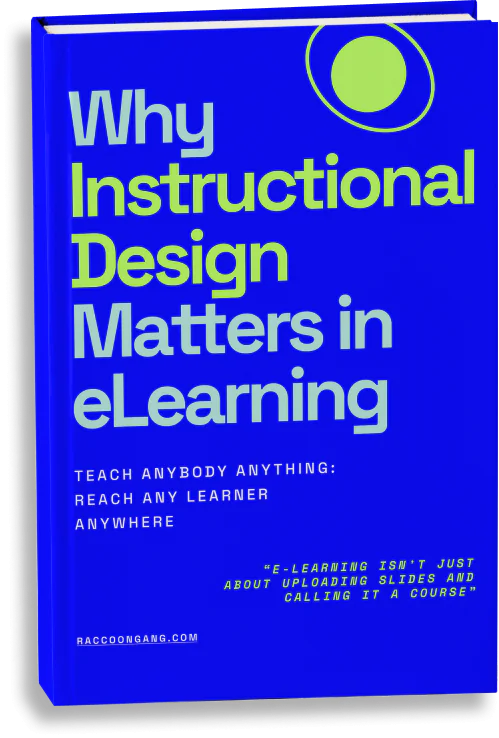In today’s educational setting, the main question in classrooms and boardrooms is,
“Is online schooling better?”. This complete investigation seeks to illuminate the importance of choosing online education. It highlights the advantages of flexibility, the diversity of available programs, and its accessibility. Additionally, it delves into the personalized learning strategies and the cost-effectiveness that render it an appealing option for many.
The Significance of Choosing Online Education in Today’s Society
The value of distance learning in an era of technological advancements and shifting social norms cannot be overstated. Online schooling has emerged as a viable alternative to traditional classroom learning with the advance of technology and change of lifestyles.
Besides convenience and cost-effectiveness, choosing to study distantly represents a significant shift in how we access and interact with knowledge in contemporary society. And that’s why:
- Democratizing education. Schooling remotely eliminates geographical and socioeconomic barriers, so people from any location and financial background can access diverse educational opportunities. This democratization strengthens marginalized communities and geographically isolated individuals, promoting social mobility and equity.
- Building a flexible learning ecosystem. Distance learning meets individual needs and schedules unlike traditional education, which has a rigid structure. It incorporates education into learners’ lives through self-paced learning, personalized content, and asynchronous access, encouraging lifelong learning and continuous reskilling for today’s fast-paced environment.
- Shaping future-ready learners. Online platforms promote digital literacy and technological fluency by involving learners in interactive tools, virtual collaboration, and multimedia content. It promotes critical thinking, problem-solving, self-directed learning, and the development of adaptable and independent thinkers, all essential for success in a technologically driven future.
- Transforming the teaching-learning paradigm. Going beyond the traditional teacher-centered model, online mode training creates a collaborative and interactive learning environment. Virtual discussion forums, peer-to-peer feedback, and global interaction break down geographic barriers, preparing students for an interconnected world that requires teamwork and adaptability.
- Redefining accessibility. Learners with disabilities can use specialized tools and resources; multimedia content benefits visual and auditory learners. This inclusive approach ensures that knowledge is accessible to all, creating a more equitable and diverse learning environment.
The Benefits of Flexibility in Online Education
Schedule Flexibility: How Online Schools Allow Students and Teachers to Set Their Own Pace of Learning
The inherent adaptability of online schools illustrates a fundamental shift in the power dynamics of learning. Compared to brick-and-mortar schools, which have a fixed schedule and standardized pace of learning, the virtual setting allows both students and teachers to tailor their learning experience to individual needs and learning styles.
For students, this freedom translates to several advantages:
- Breaking the 9-to-5 mold. Early risers can tackle coursework at dawn, while night owls can delve into concepts under darkness. This autonomy accommodates diverse chronotypes and optimizes learning during peak focus periods.
- Juggling priorities with grace. Online schedules enable juggling demanding work, caring for family, or fulfilling personal commitments. It also allows students to integrate education into their work-life balance, eliminating the “either/or” dilemma.
- Learning at the ideal pace. Struggling with a math concept? Rewind and replay the lecture. Grasping physics with ease? Accelerate through the material and delve deeper into advanced topics. Online environments cater to individual learning speeds, fostering mastery without the anxiety of falling behind or feeling rushed.
This flexibility also extends to teachers, creating a new paradigm of pedagogical engagement:
- Personalized mentorship. Online tools facilitate individualized instruction, allowing teachers to provide targeted feedback, address specific learning gaps, and offer tailored support to each student.
- Nurturing diverse talents. A dynamic learning environment that recognizes and supports individual needs allows gifted students to excel and others to receive focused attention, fostering diverse talents.
- Breaking free from the physical classroom. Teachers can use digital resources to create engaging, interactive experiences regardless of their physical location. Imagine conducting a virtual field trip to the Amazon rainforest or collaborating on a global science project — the possibilities are boundless.
Time Management: Developing Time Management Skills Through a Flexible Schedule
The adaptability offered by online schooling provides more benefits than just time-saving; it serves as a place for honing essential time management skills. In contrast to the structured timetables of conventional learning settings, virtual environments demand self-discipline and organizational skills from learners. Here’s how:
- Planning and prioritization. Students learn to prioritize tasks, set realistic goals, and manage their time effectively to meet deadlines and balance their academic schedules with other commitments.
- Learning from mistakes. Missed deadlines and forgotten assignments teach valuable accountability and time management lessons, promoting personal growth and self-reliance.
- Building independent learning habits. The freedom to structure their schedules encourages students to develop effective learning strategies, take ownership of their progress, and become independent learners, skills that lead to success in all aspects of life.
Although having the freedom of a flexible schedule may feel daunting at first, online environments provide the perfect atmosphere for developing the crucial skill of organizing time. Through trial and error, students learn to navigate their own pace, prioritize tasks, and ultimately become self-directed learners ready to tackle any challenge.
Diversity of Online Education Programs
Diversity of Subjects: How Online Education Provides Endless Opportunities to Learn in a Variety of Disciplines
Taking classes online opens the doors to various subjects, allowing students to explore diverse fields of study. From science and technology to the arts and humanities, digital programs cater to different interests, contributing to a more well-rounded and diverse educational experience.
Accessibility of Online Education
Limitlessness of Location: Ability to Learn and Teach from Anywhere in the World
Online learning transcends geographical limitations, enabling students and educators to engage from virtually any part of the world. This increased accessibility expands educational opportunities and stimulates students to adopt a global perspective, promoting cross-cultural understanding and collaboration in the virtual learning environment.
Saving Time and Money: Avoiding Long Travel and the Expense of Study Materials
Distance learning has the practical advantage of eliminating travel costs and the need for physical learning materials. It saves time and helps the economy by reducing the environmental impact of traditional education, which is in line with modern sustainable practices.
Personalized Approach to Learning
Small Groups: Benefits of Small Groups for More Interaction and Feedback
In distance learning, smaller groups are usually gathered to establish a strong sense of community and promote meaningful interactions between students and instructors. This approach, centered around personalization, enhances the quality of feedback and cultivates a highly engaging learning environment. Students actively participate and collaborate, having a more enriching educational experience.
Access to a Variety of Materials: How Online Education Provides a Personalized Learning Experience
The digital essence of online schooling provides access to many resources. Students can explore multimedia content, virtual libraries, and interactive materials. They can tailor their journey to their preferences and learning needs. This results in a more personalized and valuable learning experience.
Cost-Effectiveness of Online Learning
More Affordable Costs: Why Online Education Is Less Expensive for Students
The financial argument for studying remotely is undeniable. Online programs boast significantly lower costs, making quality education more accessible to a broader range of learners. This affordability stems from several key factors, including:
- Reduced overhead costs. Online courses eliminate the need for physical infrastructure like buildings, classrooms, and maintenance, translating to lower tuition fees. These savings are passed on to students, making education more financially feasible.
- No geographic constraints. Remote learning removes geographical barriers, allowing students to avoid relocation costs associated with attending on-campus programs. It eliminates the need for expensive housing, transportation, and living expenses, easing the financial burden.
- Flexible learning options. Distance education institutions often offer part-time and flexible learning schedules. That said, students can continue working while pursuing their education, minimizing lost income and maximizing financial stability.
- Reduced material costs. Distant courses often use digital resources like e-books, online simulations, and multimedia content, eliminating the need for expensive physical textbooks and classroom materials. It results in significant cost savings for students.
Discounts and Scholarship Opportunities: Saving Extra Money for Students
Remote education platforms often go the extra mile by offering discounts and scholarship opportunities. These incentives increase the affordability of learning distantly and make it available to a broader range of people:
- Early enrollment discounts. When registering early for a course, students can often get significant discounts. This makes distance learning even more financially attractive for them.
- Military and veteran discounts. Many platforms offer reduced tuition fees or scholarships for veterans and active military personnel, recognizing their service and commitment.
- Corporate partnerships. Organizations can partner with online platforms to provide discounted or subsidized tuition to their employees, creating valuable educational opportunities within the workforce.
- Needs-based scholarships. Online platforms often offer scholarships based on financial need, academic merit, or specific demographic criteria, ensuring that education remains accessible to those who need it most.
Key Findings on the Benefits of Online Education
From flexibility and diversity to accessibility and cost-effectiveness, distance learning can revolutionize how we approach learning. While it may not be a one-size-fits-all solution, the benefits of distance learning are undeniable, making it a possible and valuable option for many in today’s education, especially when utilizing a higher education LMS to enhance the learning experience.
- The Significance of Choosing Online Education in Today's Society
- The Benefits of Flexibility in Online Education
- Diversity of Online Education Programs
- Accessibility of Online Education
- Personalized Approach to Learning
- Cost-Effectiveness of Online Learning
- Key Findings on the Benefits of Online Education







